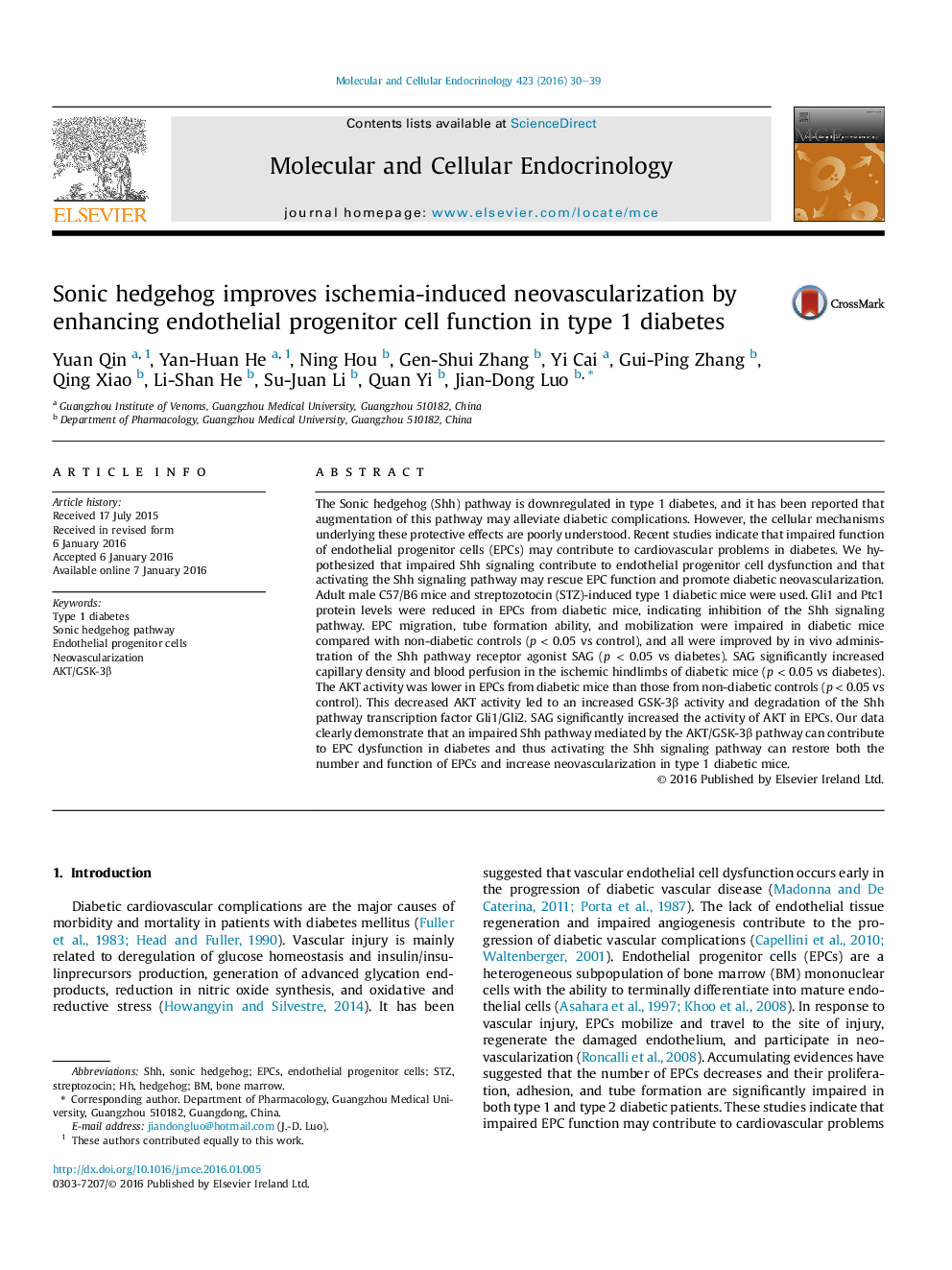| کد مقاله | کد نشریه | سال انتشار | مقاله انگلیسی | نسخه تمام متن |
|---|---|---|---|---|
| 2195576 | 1550856 | 2016 | 10 صفحه PDF | دانلود رایگان |

• Shh pathway receptor agonist enhanced blood flow recovery in type 1 diabetic mice.
• Shh pathway receptor agonist improved EPC function in type 1 diabetic mice.
• The Shh signaling pathway was impaired in diabetic EPCs.
• The Shh and PI3K/AKT pathways showed cross-talk in EPCs.
The Sonic hedgehog (Shh) pathway is downregulated in type 1 diabetes, and it has been reported that augmentation of this pathway may alleviate diabetic complications. However, the cellular mechanisms underlying these protective effects are poorly understood. Recent studies indicate that impaired function of endothelial progenitor cells (EPCs) may contribute to cardiovascular problems in diabetes. We hypothesized that impaired Shh signaling contribute to endothelial progenitor cell dysfunction and that activating the Shh signaling pathway may rescue EPC function and promote diabetic neovascularization. Adult male C57/B6 mice and streptozotocin (STZ)-induced type 1 diabetic mice were used. Gli1 and Ptc1 protein levels were reduced in EPCs from diabetic mice, indicating inhibition of the Shh signaling pathway. EPC migration, tube formation ability, and mobilization were impaired in diabetic mice compared with non-diabetic controls (p < 0.05 vs control), and all were improved by in vivo administration of the Shh pathway receptor agonist SAG (p < 0.05 vs diabetes). SAG significantly increased capillary density and blood perfusion in the ischemic hindlimbs of diabetic mice (p < 0.05 vs diabetes). The AKT activity was lower in EPCs from diabetic mice than those from non-diabetic controls (p < 0.05 vs control). This decreased AKT activity led to an increased GSK-3β activity and degradation of the Shh pathway transcription factor Gli1/Gli2. SAG significantly increased the activity of AKT in EPCs. Our data clearly demonstrate that an impaired Shh pathway mediated by the AKT/GSK-3β pathway can contribute to EPC dysfunction in diabetes and thus activating the Shh signaling pathway can restore both the number and function of EPCs and increase neovascularization in type 1 diabetic mice.
Journal: Molecular and Cellular Endocrinology - Volume 423, 5 March 2016, Pages 30–39